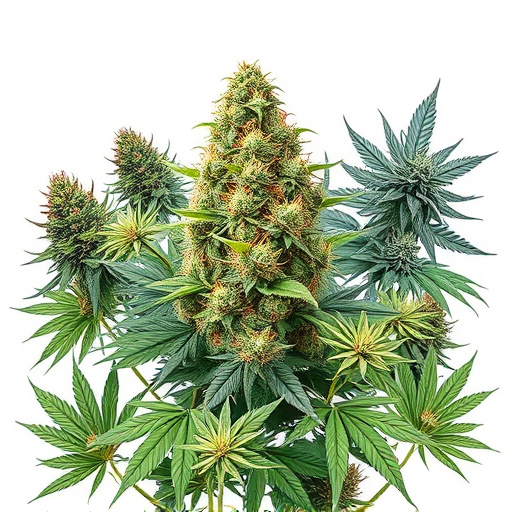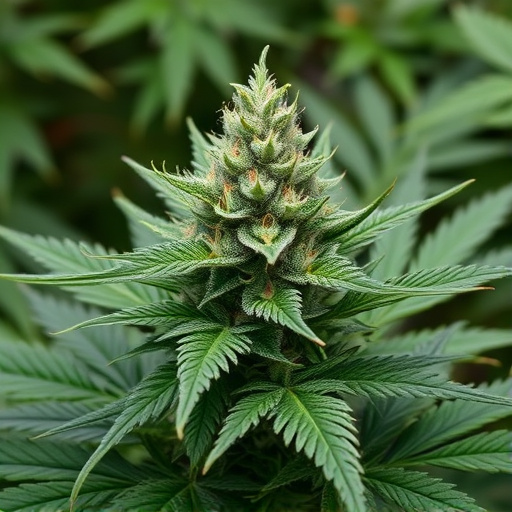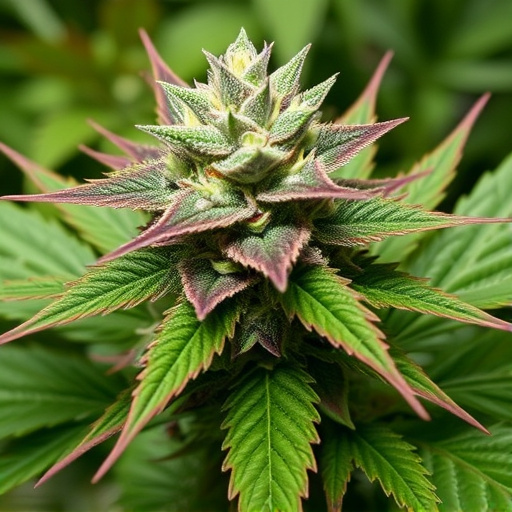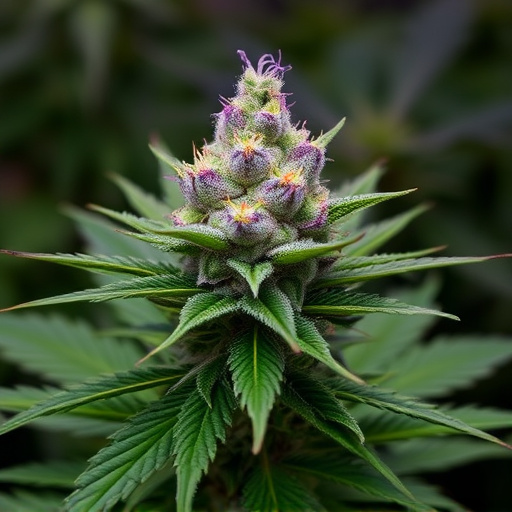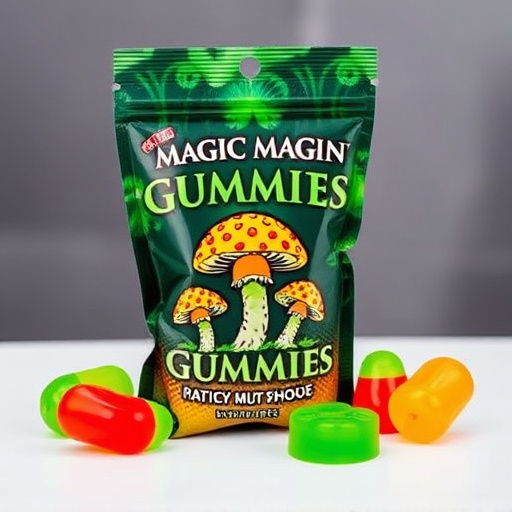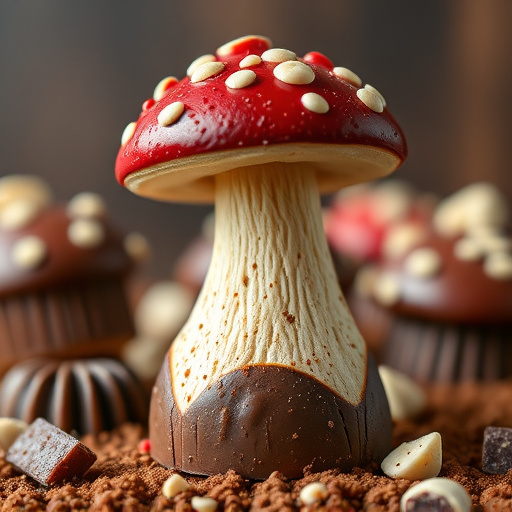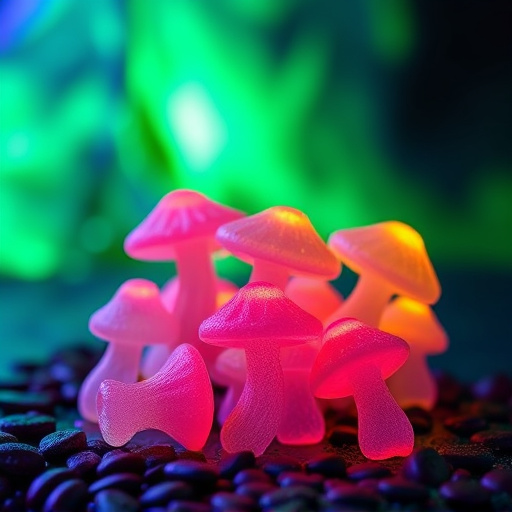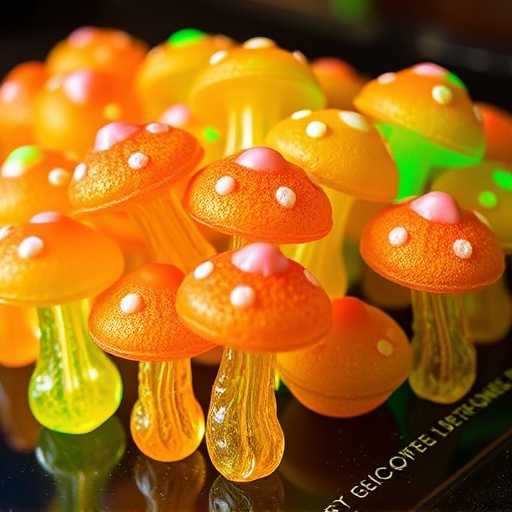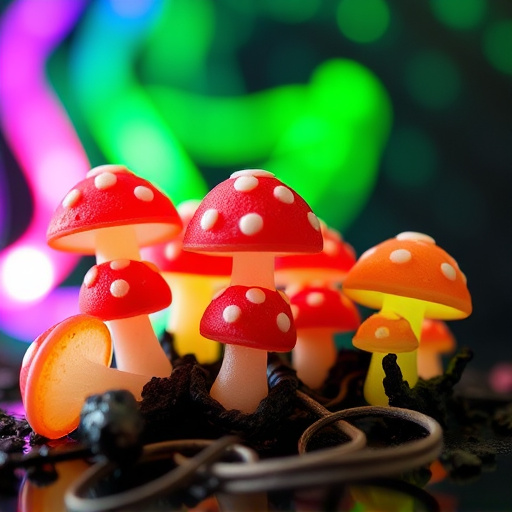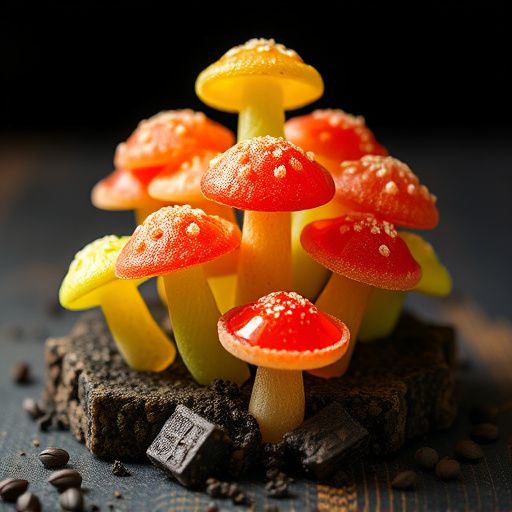Magic Mushroom Gummies, rich in psilocybin and psilocin compounds, significantly impact neural connectivity in the brain. These substances interact with serotonin receptors, leading to altered states of consciousness and enhanced communication between brain regions. Research highlights their potential in promoting creativity, improving mood, and treating mental health conditions like depression, anxiety, and PTSD by facilitating neural plasticity and strengthening cognitive functions. Therapeutic sessions involving Magic Mushroom Gummies induce altered perceptions and emotional awareness, offering promising avenues for novel treatment approaches centered around brain connectivity.
“Uncover the fascinating world of Magic Mushroom Gummies, a revolutionary approach to mental health and wellness. This article delves into the science behind these unique treats, exploring their impact on neural connectivity and brain function. From the active compounds in magic mushrooms to studies on psychedelic-assisted therapy, we unravel the potential benefits for anxiety, depression, and cognitive enhancement. Additionally, we navigate the legal landscape, providing insights on buying safe Magic Mushroom Gummies with free shipping, ensuring a well-informed and protected experience.”
- The Science Behind Magic Mushroom Gummies and Their Impact on Neural Connectivity
- – Exploring the active compounds in magic mushrooms and their effects on brain function
- – Studies on psychedelic-assisted therapy and its potential to strengthen neural connections
The Science Behind Magic Mushroom Gummies and Their Impact on Neural Connectivity
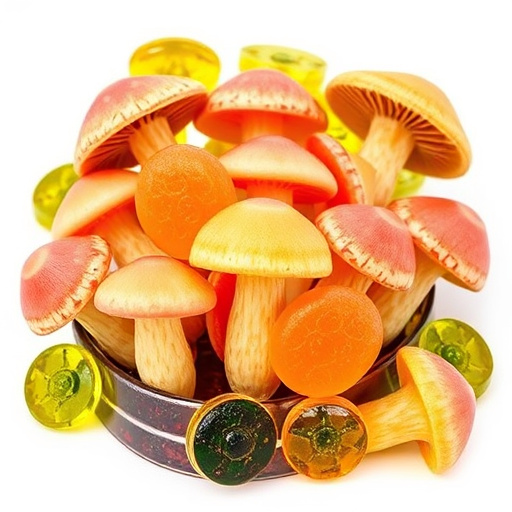
The science behind Magic Mushroom Gummies reveals a fascinating connection between their active compounds and neural connectivity in the brain. Psilocybin, the key psychoactive compound found in magic mushrooms, has been studied for its ability to alter consciousness and induce mystical experiences. Recent research suggests that psilocybin interacts with serotonin receptors in the brain, primarily targeting the 5-HT2A receptors. This interaction can lead to changes in neural firing patterns, enhancing communication between different brain regions.
Studies have shown that microdoses of magic mushroom gummies, containing a controlled amount of psilocybin, can promote increased creativity, improved mood, and enhanced emotional well-being. The impact on neural connectivity may underlie these effects, as it facilitates more flexible thinking and opens up new pathways for cognitive processing. This novel approach to mental health and wellness is gaining traction, with ongoing research exploring its potential therapeutic benefits in treating conditions like depression, anxiety, and PTSD, further highlighting the intricate relationship between Magic Mushroom Gummies and neural connectivity.
– Exploring the active compounds in magic mushrooms and their effects on brain function
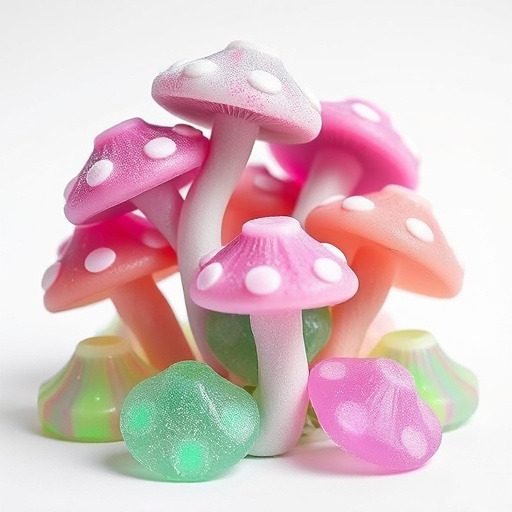
Magic mushrooms, scientifically known as Psilocybin mushrooms, contain psilocin and psilocybin, powerful compounds that have gained significant interest in recent years for their potential therapeutic effects on brain function. These substances primarily interact with serotonin receptors in the brain, leading to altered states of consciousness and various psychological effects. Research has explored their impact on neural connectivity, suggesting they may enhance communication between different brain regions, fostering a sense of unity and improved cognitive processing.
The active compounds in magic mushroom gummies, derived from these mushrooms, can temporarily alter brain chemistry, promoting increased creativity, emotional well-being, and even potential mental health benefits. Studies indicate that psilocin may facilitate the re-establishment of neural connections, especially in areas related to memory and perception, thus improving cognitive flexibility. This unique property has sparked interest in using magic mushroom gummies as a therapeutic tool for various conditions, including depression, anxiety, and PTSD, where promoting neural connectivity could offer novel and promising treatment avenues.
– Studies on psychedelic-assisted therapy and its potential to strengthen neural connections
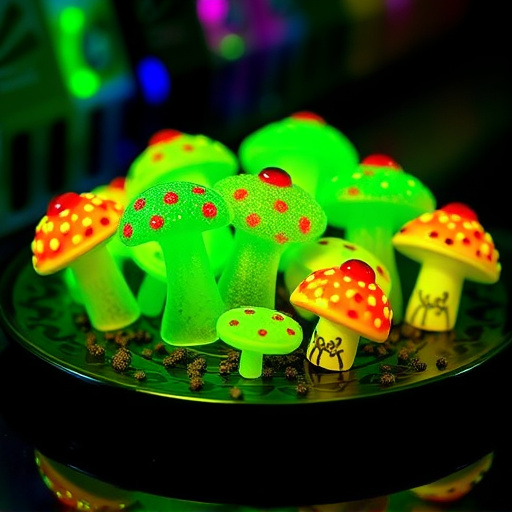
Recent studies have shed light on the potential benefits of psychedelic-assisted therapy, particularly focusing on its impact on neural connections. Research suggests that compounds found in magic mushroom gummies, known for their psychoactive properties, can facilitate a profound state of consciousness and promote significant changes in brain activity. These compounds, such as psilocybin, have been linked to enhanced neural plasticity—the brain’s ability to form new connections and adapt.
During psychedelic-assisted therapy sessions, participants often report experiencing altered states of perception and heightened emotional awareness. This can lead to profound insights and personal growth. Moreover, neuroimaging studies have indicated that psychedelic experiences may result in the strengthening of neural networks involved in various cognitive functions. By promoting the rewireling of neural pathways, magic mushroom gummies could offer a novel approach to therapeutic interventions, potentially treating conditions like depression, anxiety, and PTSD by improving overall brain connectivity and communication.
Magic mushroom gummies, with their enticing offers of free shipping, have sparked interest in the therapeutic potential of psychedelics. The science behind these treats reveals a compelling connection between their active compounds and enhanced neural connectivity. While more research is needed, early studies on psychedelic-assisted therapy suggest that magic mushrooms could hold key to strengthening brain connections, offering new possibilities for mental health treatments.
